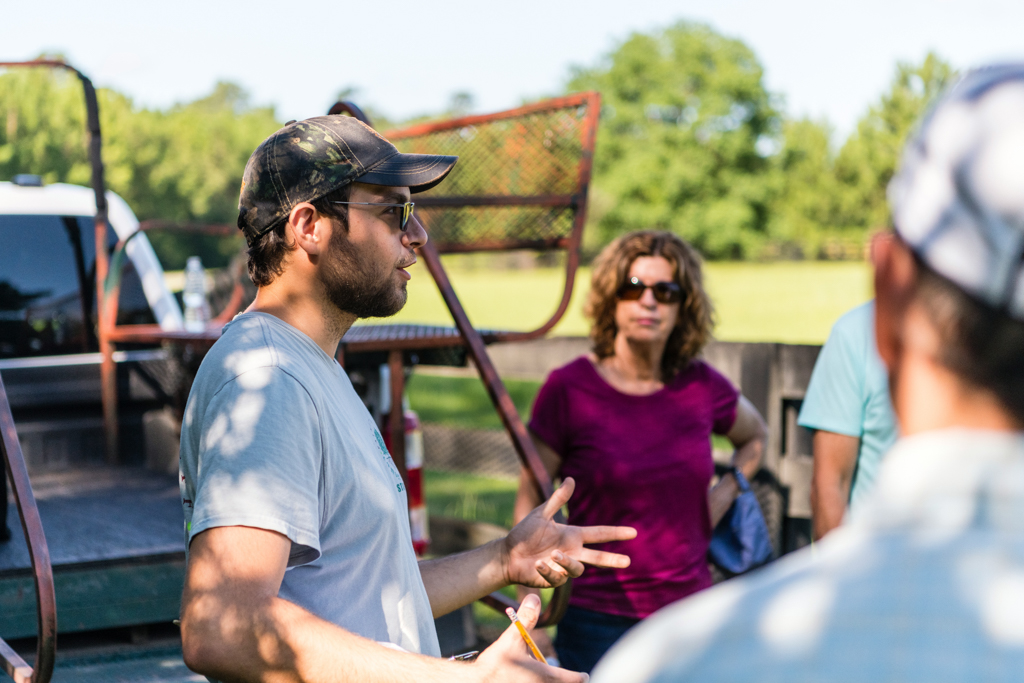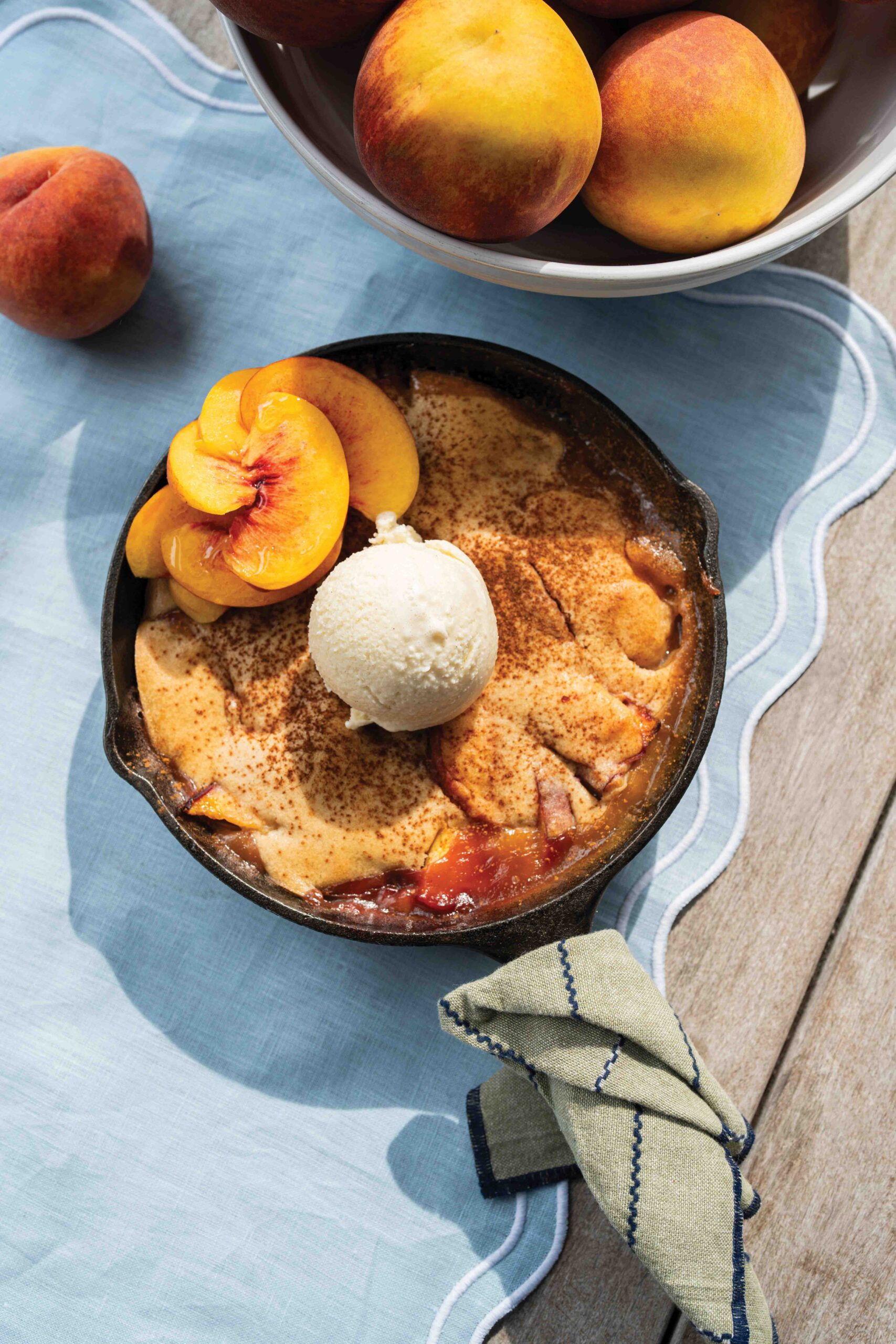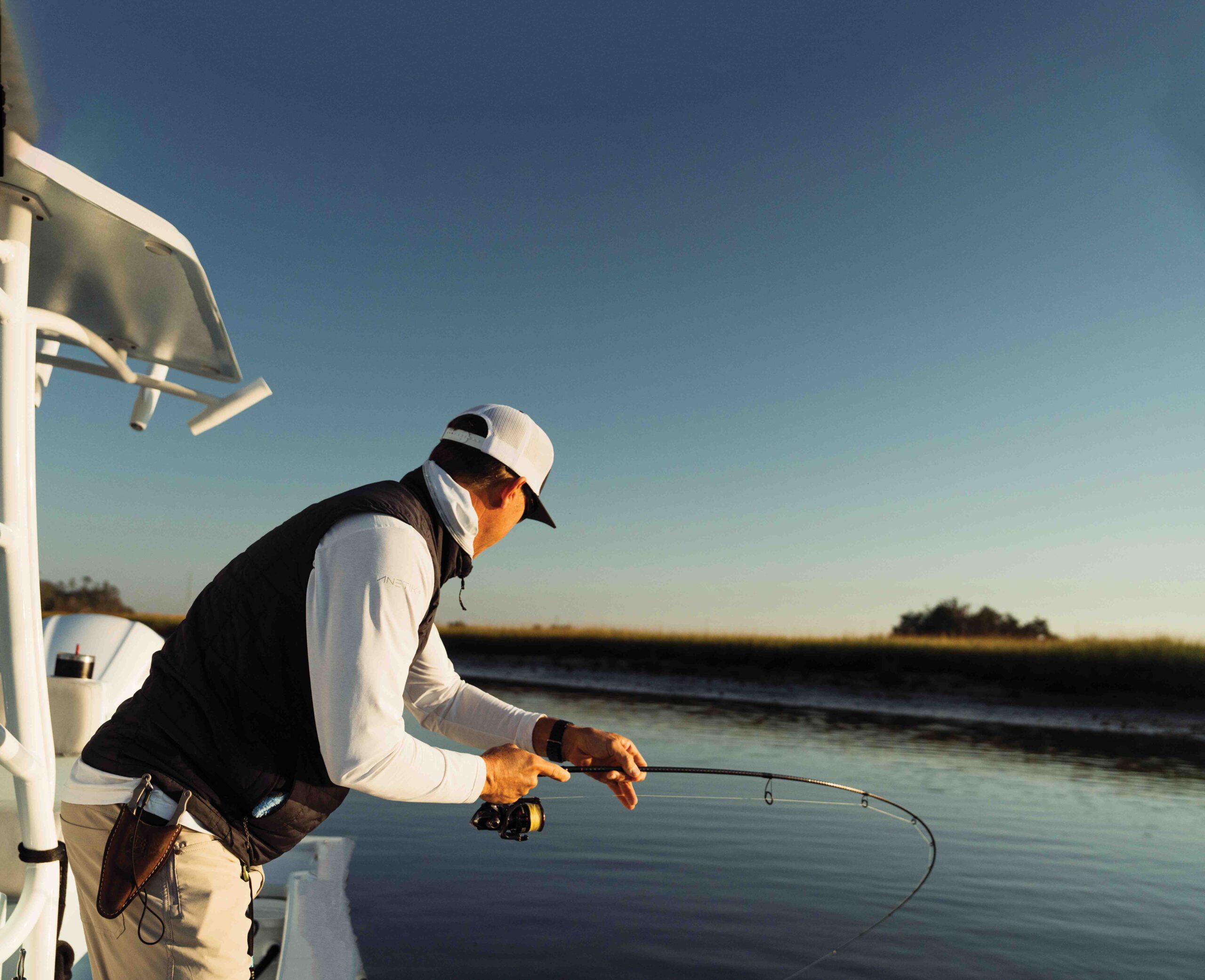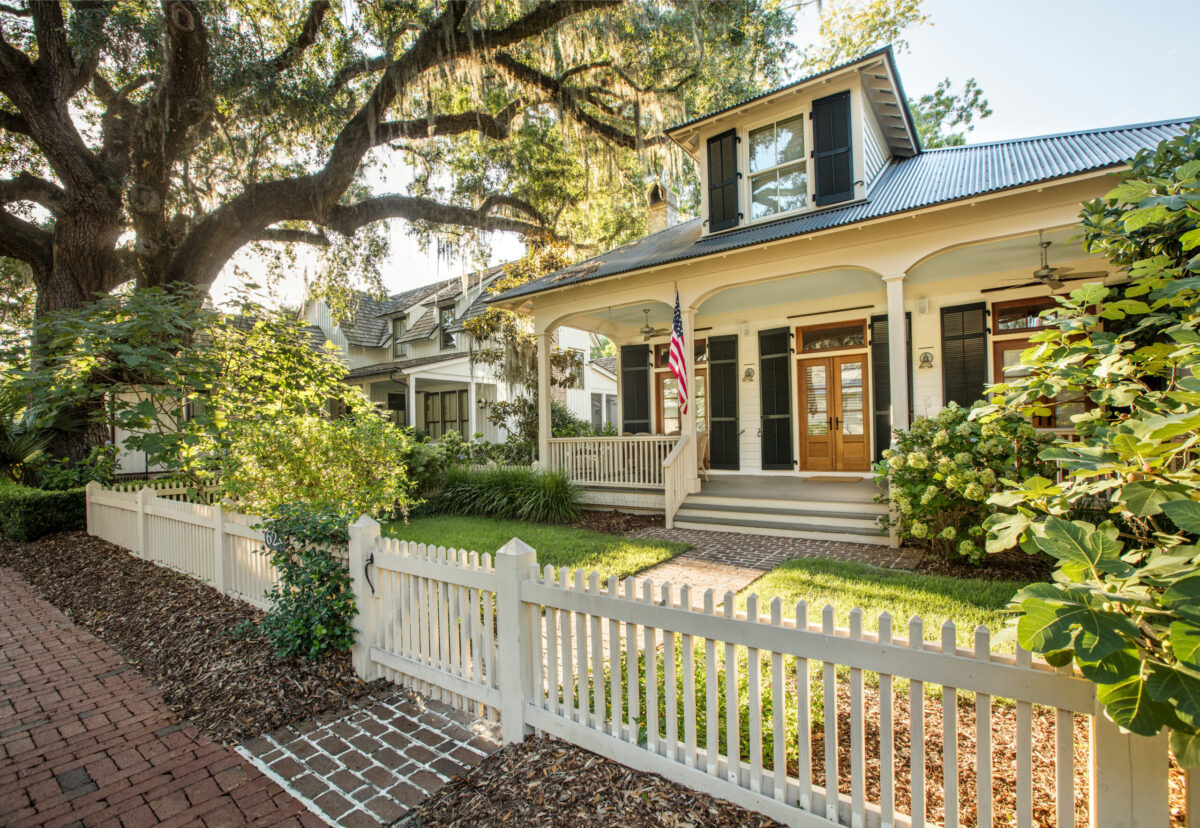Palmetto Bluff Real Estate Company Sales Office
Office Hours
Monday-Friday 9am - 5pm
Saturday 9am - 4pm
Sunday 12 - 4pm
Saturday 9am - 4pm
Sunday 12 - 4pm
Photography by Parker Stewart.
John “Crawfish” Crawford was holding court on Ossabaw Island about a decade ago, leading a nature retreat and talking about Yaupon holly, an ancient plant that native tribes in the southeastern United States used as a stimulating beverage, medicinal plant, and ceremonial drink for centuries.
As Crawfish clamored on about the history of the plant that grows wild all over Ossabaw — a barrier island near Savannah, Georgia, whose name literally translates to “land where the Yaupon grows” in the language of the island’s original inhabitants — someone in the group suggested they brew some tea around the campfire later that night.
Lou Thomann was sitting around that campfire and sipping tea when he felt his dormant passion about Native American culture rekindling, perhaps with an assist from the natural stimulant.
“I felt the effects immediately and it was really interesting,” Thomann recalls. “As he was telling us about the tree, I just felt something about this tree was going to be my future. I kind of knew it immediately.”
When Lou got back to the mainland, he went into a deep dive researching what he now calls “North America’s forgotten medicinal plant.” Among the many interesting notes he learned was the notion that native medicine men were known to smoke Yaupon leaves to enhance their dream sequences and awaken inspired with a prescription for whatever ailed their patients.
It appears Lou was similarly inspired when he first sipped Yaupon tea all those years ago on Ossabaw.

Lou’s fascination with Yaupon (pronounced “yo-pawn”) started small enough, picking leaves from wild trees growing in the maritime forest surrounding the fish camp the family visits down the Georgia coast near Darien and serving the tea at charity events and social gatherings. He was working in construction at the time, but after a couple years of dabbling and deepening his interest in the plant, he decided to give it a go full-time.
With his wife, Savannah real estate agent Lori Judge, supporting him, Lou launched into his newfound passion with both feet. The Yaupon Tea Company began packaging and selling tea leaves and ready-to-drink beverages, using Yaupon propagated from the wild trees growing at the fish camp and on Temples Farm in Metter, Georgia.
The company also owns a 270-acre long leaf pine farm in the Florida Panhandle, where wild Yaupon thrives in the shade beneath the pines. With distinctly different growing conditions at the two farms, Lou has been able to experiment, leading to a $620,000 Phase II Small Business Innovation Research grant from the U.S. Department of Agriculture to study the effects of different growing conditions on the plant’s chemistry and yields, which presents the prospect of creating an expanded line of natural health products from the plant, as well as scaling up the supply chain to support increased wholesaling nationwide.
The results, thus far, have been promising.
“Basically, the summary is this leaf wants to do big things,” Lou says. “It really wants to expand itself. Given the right cocktail of nutrients and shade and environment, the desirable compounds will dramatically increase. So now the challenge is creating a regenerative agricultural supply chain model for the wild crop, and that’s kind of what we’re doing.”

For the first few years, Yaupon was Lou’s obsession. Lori was just there for moral support. But things took a turn when Lori’s interest in holistic medicine and natural healing fueled an increased fascination with Yaupon.
Lori was diagnosed with Graves’ disease in 2010, and she could not seem to kick the thyroid disorder until she abandoned Western medicine and opted for a regimen of herbal remedies, acupuncture, and a strict diet. Now fully healthy, she is determined to help others discover natural treatments for various ailments.
“I’ve been interested in holistic and natural healing for a long time,”

Lori recalls. “My grandfather was a chiropractor, so it’s always kind of been in my blood, and then I got sick. … Long story short, I was able to heal myself naturally without Western medicine. And it kind of got me more interested into the natural medicine, which kind of coincided with what Lou was doing.”
While opening a shop in Savannah has long been Lou’s dream — one that came true in April 2019 — it’s Lori who has taken the lead in the Yaupon Teahouse and Apothecary’s growing line of health and wellness products, ranging from skincare treatments to herbal smokes that blend Yaupon with CBD, lobelia, or even catnip, which Lori says provides instant relief for menstrual cramps with just a couple puffs.
“It’s really what I like, that’s really where I start, because I’m pretty picky,” Lori says with a laugh. “I want everything organic. I want not a lot of ingredients in my skincare, as natural as possible. Very few essential oils, because I’ve learned that they are so powerful and they’re not sustainable. There’s an art to it, but there’s also a science to it.”
To say this is Lou’s calling would not be a stretch. Going back to that night on Ossabaw Island, the land where the Yaupon grows, something inside him stirred. Now the childhood fascination with Native American cultures that had fizzled out around age 10 or 11 is burning brightly.
In the decade since, Lou has become an expert — arguably the expert — on Yaupon. His mission has become as much about education as business. He rattles off one fact after another about the plant’s history, noting its uniqueness among medicinal plants native to North America. Yaupon was prized by a wide variety of tribes who traveled great distances to consume and trade the tea British colonists would later call “black drink.” It was even traded to the Mayans for cacao.
For years, it seemed like Lou was the only person in America who was talking about Yaupon, but articles about the ancient medicinal tree started popping up in regional publications a few years back, and a handful of more widespread sources, including NPR and Discovery Channel, have reported on the plant in recent years.
Lou feels compelled to see this through, almost a self-appointed ambassador for a magical plant that has been hiding in plain sight. He wants to honor Yaupon’s historical and cultural origins and reintroduce the world to the plant’s many uses and medicinal qualities.
The Yaupon Teahouse website includes a fairly extensive history of the plant, including its popularity around the globe during colonial times, when early European settlers marveled at the life span of Native Americans, who were living into their 70s while the average European life span was about 45 – attributing the health and longevity to black drink.
Even the company logo pays tribute to the plant’s heritage, featuring a rendition of a dyed image that was found on a petrified piece of wood featuring Native American art. The bird is unidentified but is said to represent a warrior bird that protects its family.
“There is probably other symbolism with the bird,” Lori says, “but for us it represents protection for health, wellness, and longevity.”
Fitting for a healing plant that is on the rise after being overlooked for so long.

Yaupon at the Bluff
Given that Yaupon holly was used as an all-purpose medicinal plant by tribes native to the southeastern United States, it should come as no surprise that the ancient herbal remedy grows abundantly at Palmetto Bluff.
A small native evergreen tree whose leaves can be brewed into a potent tea known as “Black Drink,” Yaupon is the only caffeinated plant species native to North America, and it flourishes in Palmetto Bluff’s maritime forests.
Yaupon’s red berries are inedible, and in fact were used as an emetic to induce vomiting by early European settlers, but its leaves had many uses in Native American culture. Not only were they dried and steeped to produce the potent tea that is presently enjoying a resurgence in popularity, but they were also smoked and used in numerous ceremonies and rituals, many of which likely took place right here at the Bluff.
Native Drink originally appeared in the Fall/Winter 2020 edition of the bluff.

Palmetto Bluff’s Moreland Village feels a world away from the more traditional architecture of the iconi...

We are thrilled to introduce the inaugural winners of the Inspiring the Arts Scholarship—three extraordinary young women pursuing their artistic dreams through higher education! Katherine Donahue has been named our first official scholarship recipient, with Em...

From handmade jewelry to performance wear, the latest arrivals at Palmetto Bluff’s retail spots capture the season in true Lowcountry style. This summer, the Bluff’s shops are full of fresh finds, carefully chosen by our trusted retailers—including FLOW Galler...

Citizen Science is Thriving at Palmetto BluffDid you know that residents of Palmetto Bluff are playing a vital role in national and global conservation efforts—all from their backyard?Through the Palmetto Bluff Conservancy’s growing Citizen Science programs, c...

In October 2024, Grammy Award-winning musician Clay Ross visited Palmetto Bluff as part of The Arts Initiative's Artist in Residence Program. Through storytelling and song, he explores identity, heritage, and the universal language of sound. By Barry Kaufman ...

Palmetto Bluff Club Executive Chef Beth Cosgrove and Director of Culinary, Chef Rhy Waddington, Cook Up Four Peachy Recipes for a Summer in the South. Is there anything more iconic than a southern peach? A symbol of summer and Southern heritage, the peach car...

Following the tides and angling for redfish in Lowcountry creeks and estuaries with Captains Brian Vaughn and Will Stephens Story by Sandy Lang It is a sunny morning in October and the water is calm and glassy. The silence is punctuated by a gush of breath f...

7 Ways To Upkeep Your Palmetto Bluff Home As spring arrives in the Lowcountry, the change in season brings more than blooming marshlands and sun-drenched afternoons; it’s also a perfect time to refresh and care for your Palmetto Bluff home. Coastal living mea...

When the land speaks, you listen. And at Palmetto Bluff, it spoke to two of golf’s most legendary course designers—Bill Coore and Ben Crenshaw. We invite you to watch our newest video, shot this past winter and featuring Bill and Ben, along with South Street P...

5 Renovations to Increase the Value of Your Lowcountry Home Whether Palmetto Bluff is your full-time residence or a cherished retreat, deciding to sell is never a quick or casual choice. However, when the time does come, you want your home to be as market-rea...
Learn about the Palmetto Bluff Conservancy and how we keep the vision of our land in place.
On land or water, there is an ever-evolving variety of activities.
We do not attempt to independently verify the currency, completeness, accuracy or authenticity of the data contained herein. All area measurements and calculations are approximate and should be independently verified. Data may be subject to transcription and transmission errors. Accordingly, the data is provided on an “as is” “as available” basis only and may not reflect all real estate activity in the market”. © [2023] REsides, Inc. All rights reserved. Certain information contained herein is derived from information, which is the licensed property of, and copyrighted by, REsides, Inc.